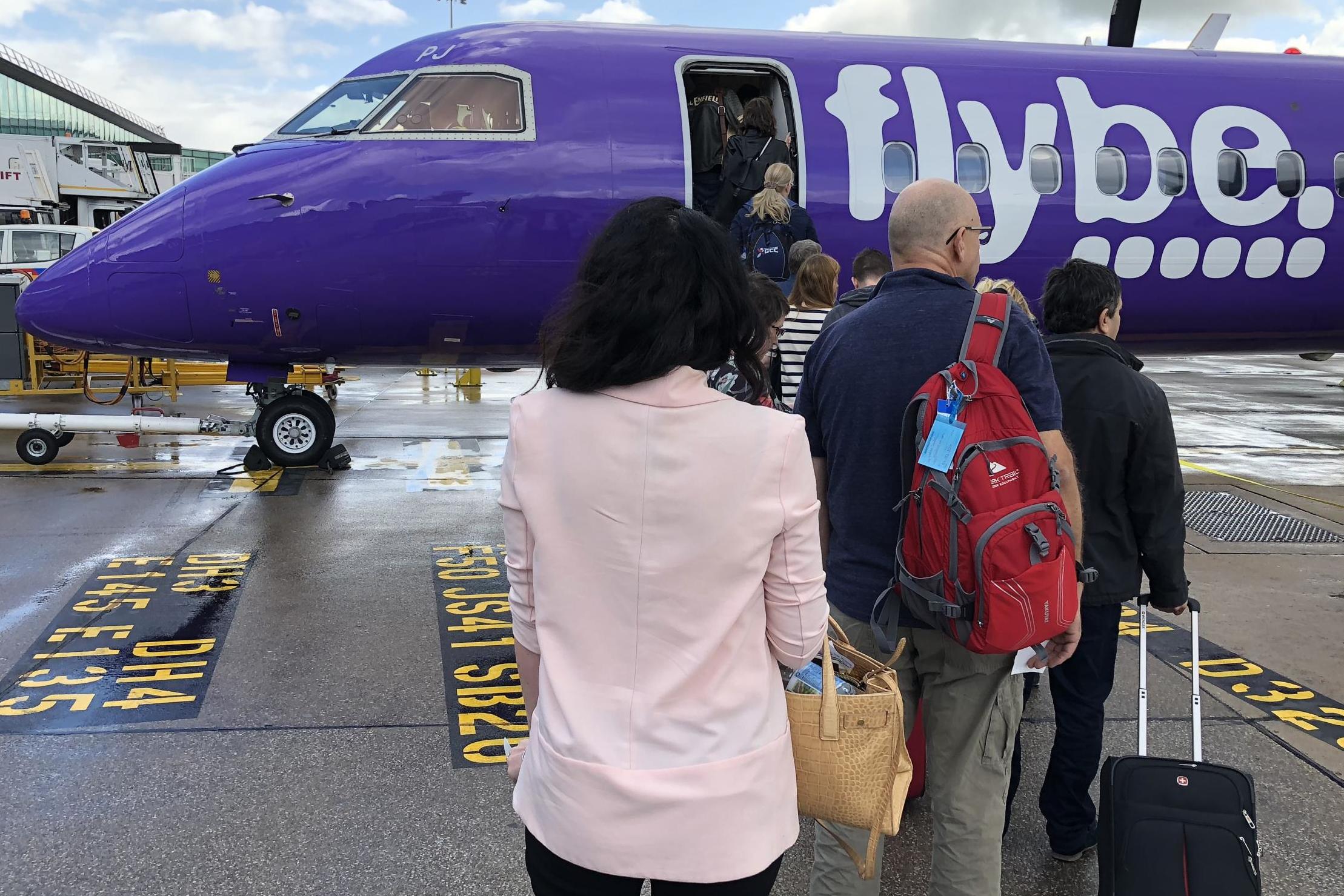The failure of Flybe demands creative economic thinking if Johnson is serious about ‘levelling up’ Britain
The economic threat from the demise of Flybe relates less to its direct impact than to its potential to undermine the government’s hopes of rebalancing the UK, writes Ben Chu


A few years ago the American investor Warren Buffett joked that the airline industry had experienced a “bad first century” in financial terms.
And now, thanks to the coronavirus disaster, the second century doesn’t seem to be shaping up much better.
Flybe, the dominant provider of UK domestic air routes, has already crashed to earth. Others are looking vulnerable. Hundreds of flights have been cancelled.
The International Air Transport Association is now predicting revenue losses for the aviation industry this year of between 10 and 20 per cent – or $60bn to $100bn (£46bn to £77bn).
The economics of airlines have long been precarious because of volatile fuel costs, volatile currencies, volatile passenger demand, and the tendency of governments to subsidise – and often bail out – national carriers.
Bailouts of unprofitable airlines tend to look desirable – all those “saved” jobs – but they are not much help to stressed competitors, as British Airways, easyJet and others forcefully pointed out when the government seemed to be offering a financial lifeline to Flybe earlier this year.
That lifeline has now been withdrawn, of course. Ministers probably feared they would effectively be writing a blank cheque given the radical uncertainty over how long the coronavirus outbreak will last, with its consequent effect on demand for domestic flights.
The overall national economic impact of ministers letting Flybe go to the wall are unlikely to be significant, certainly when compared with the potential impact of the virus on the UK.
The reason Flybe was in trouble long before the world had heard of Covid-19 was that so many of its routes were chronically unprofitable.
Yet the impact of this corporate collapse in some areas could still be sizeable, given that Flybe provided the majority of flights from a number of smaller UK airports, including Southampton, Exeter and Newquay. Local politicians have warned that its demise could also threaten the viability of airports such as Birmingham and Cardiff. The dominance of Flybe at Belfast City airport creates a clear headache in the context of Brexit, which many in Northern Ireland feel is already separating them commercially from the rest of the UK.
One of the reasons the government, and even the traditionally bailout-averse Treasury, was initially minded to prop up Flybe with a state loan was the carrier’s role in facilitating regional connectivity.
The threat from the demise of Flybe relates less to its direct impact than to its potential to undermine the government’s hopes of rebalancing the UK economy, of “levelling up” Britain, something most economists agree is necessary to improve the UK’s miserable productivity growth.
Ministers are already in the process of trying to preserve Flybe’s routes by transferring them to other carriers, probably with the incentive of taxpayers’ cash. In theory, it makes more sense for the state to subsidise the individual air routes it wants to keep open for social reasons rather than bail out the single carrier that currently provides them. In practice, however, there will be difficulties with such a transition; this is not an ideal moment to be asking private airlines to take on more routes, even subsidised ones.
There are difficult trade-offs to be made here by ministers. The danger is that they rush decisions instead of taking a comprehensive look at the UK’s transport needs and environmental obligations – taking into consideration the future role of high-speed rail links, the question of Heathrow’s expansion, and the 2050 net-zero emissions target (that effectively forces the government to choose whether to expand airport capacity in London or the rest of the country).
Hints from government earlier this year that Air Passenger Duty will be slashed in next week’s Budget as a short-term support for airlines – despite air travel being under-taxed relative to other forms of transport, and with carbon emissions from aviation rising rapidly as a share of the UK’s total – were not an encouraging sign that ministers are thinking clearly about these interlocking challenges.
The first aviators a century ago flew by the seat of their pants. We don’t need ministers today who do the same.
Join our commenting forum
Join thought-provoking conversations, follow other Independent readers and see their replies
Comments